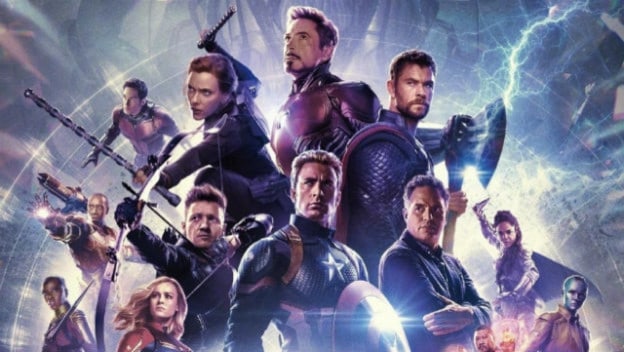Early 2019 has been a big, busy time for geek fandoms. Video games have been full of bangers, with titles such as Devil May Cry 5 , Kingdom Hearts III , and Resident Evil 2. But perhaps more powerful than any video games have been two media properties in other mediums, one TV show and one movie. The first is Avengers: Endgame , the long-awaited finale to what we know as the Marvel Cinematic Universe. The second is Game of Thrones , which has finally entered its final season. With these two properties reaching their respective climaxes, my social media feeds have been full of screaming. But while much of the screaming has been of excitement and enjoyment, a much larger portion has been concern about spoilers.
I understand why people get so upset about spoilers, I really do. But I have a hard time being okay with the way this “spoiler culture,” which has increased in intensity over the years, has impacted how we talk about media. The anti-spoiler sentiment from certain sects of various fandoms come off as aggressive for one, but another concern of mine is an overall drop in quality discourse. While many fans are busy debating over what the statute of limitations on textual information is, others are trying to just have discussions about the movie/show/game they just watched/played.
Spoilers technically aren’t even a real concern. We’ve talked about in on this site before, but a recent study came to suggest that avoiding spoilers doesn’t necessarily have a net positive effect on a person’s viewing or reading experience. In fact, of the sample size used, many more who were participating in the study ended up indicating that with spoilers given ahead of their readings, they were able to more deeply understand and enjoy the story. Not having details “spoiled” ahead of time is more about the thrill of surprise when actively experiencing the story, and not about the (perceived) quality of the story itself.
Yet, I see so many attempts to discuss things like Game of Thrones shot down out of fear of spoilers or preemptively knee-capped out of fear of spoilers. My Facebook feed was full of empty gushing about Avengers: Endgame during its opening weekend, but nobody actually said anything about it. You can’t have a conversation with your friends in public about the merits and issues of a movie like Avengers: Endgame without having someone being salty about spoilers.
Again, I get why not having spoilers are important to people. But the other side of this coin seems to be a growing movement of shutting down public displays of critical thought. Because to really break down and discuss something, to deconstruct its parts and perhaps gain a better understanding of why you liked or disliked it, you need to talk about what actually happens in it. Spoiler warning used to be about things like ending details or major plot twists. Now, it seems like uttering any detail at all will get our mentions drowned out by things like, “Thanks for the spoiler, jerk!” It comes of as mindless consumption, as the general expectation is to enjoy the film (it’s pretty solid, for what that’s worth).

With Game of Thrones back on every week, it’s a similar deal. My Twitter feed was just various incarnations of “Oh my God” mixed in with the show’s title in hashtag form. Nobody I know is really talking about the show in earnest, and in order to find readings about it I have too seek out media outlets. Which is generally fine, but to me there’s always value in the “layman’s” perspective as well. I want to talk to my friends about the new thing, not just mindlessly yap about having seen it, abstractly avoiding any details or critical thought.
Once time passes, the strict anti-spoiler crowd does ease up a little bit. But by that time, the fervor and excitement does die down a bit, and upset over spoilers continues to exist on some level. I’ve even seen an article reference a key part of a movie or game from years in the past, only see anti-spoiler anger in the comments. It’s nearly inescapable. Surely, we can’t be reasonably expected to not talk about plot details for works that have come and gone.
I get it, I do. The thrill of surprise can really heighten the visceral experience of taking something in for the first time. But being excited about experiencing something isn’t the same thing as understanding or appreciating it. And if we collectively spend more time worrying about spoilers over other aspects of media consumption, that’s all we’ll really be doing: consuming. I like to dive deep into what I’m viewing, then have enriching conversations with my peers about it. I can’t do that if I’m worried about spoilers.
